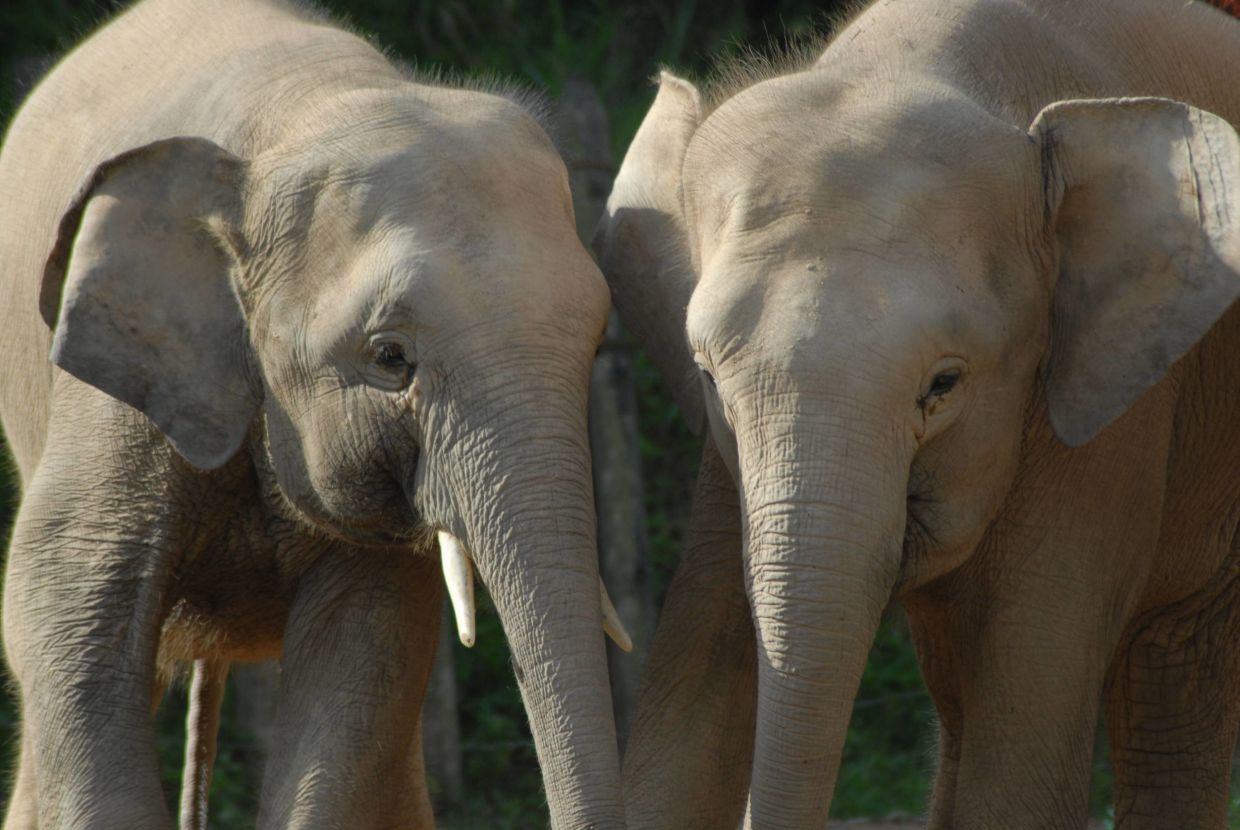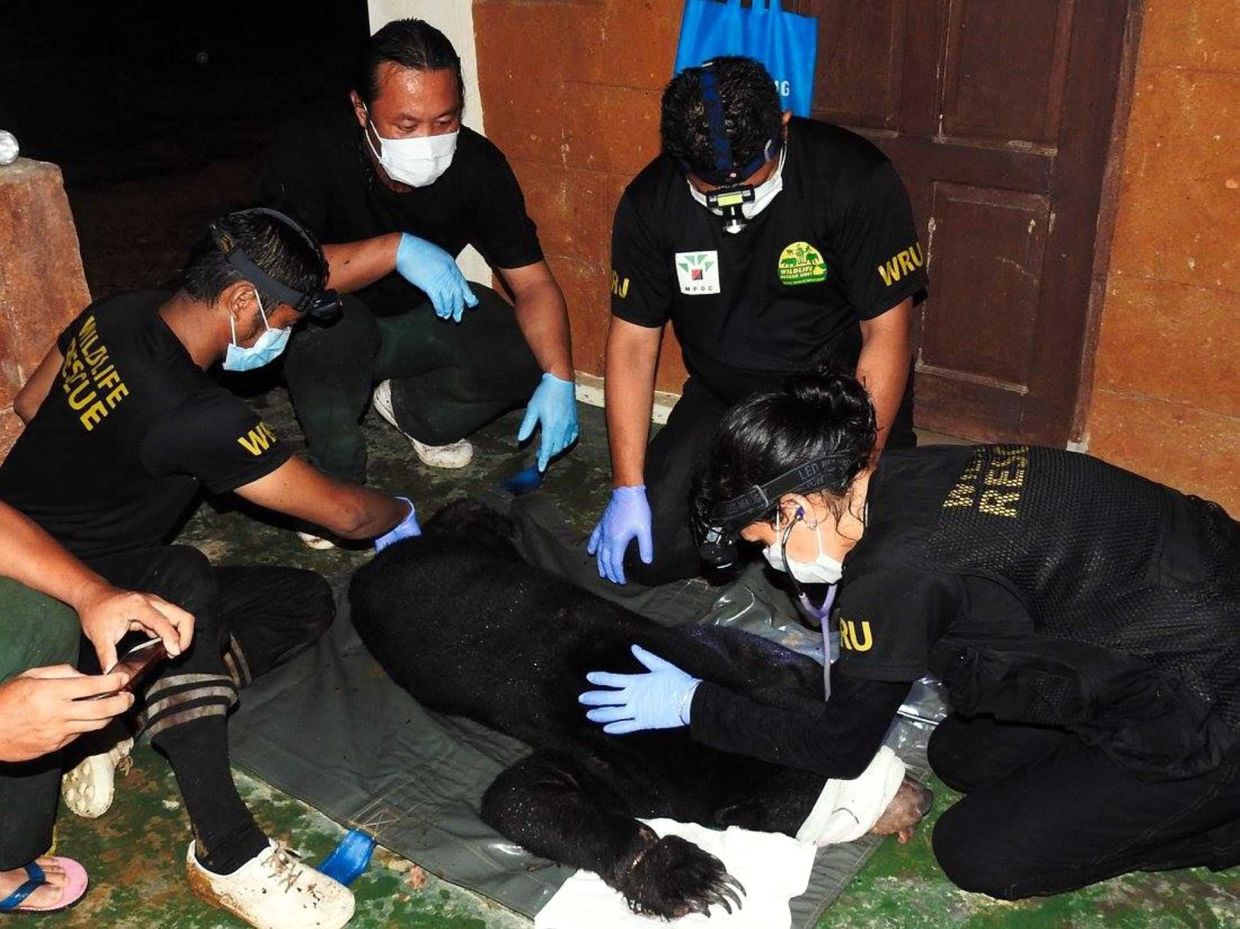MPOC is committed to strike a balance between development and the conservation of Sabah’s protected species.
LIKE firefighters, wildlife rangers drop whatever they’re doing upon receiving an alert call.
Anticipating some form of aggression from the hurt and scared wildlife they are about to save, these rangers from the Sabah Wildlife Department’s (SWD) Wildlife Rescue Unit (WRU) rush to gather protective gear and necessary equipment - anaesthetics, emergency drugs, tell-inject darts and guns, crates, chains, translocation cages, walkie-talkies, GPS and the likes - to embark on the rescue mission.
And off they go, dashing through bumpy, muddy terrain into the forest or nearby village in their weathered 4WD vehicles.
Given that the main function of SWD is to enforce living in harmony between people and nature, these rangers dedicate their time and energy to be the eyes and ears of the forest as well as its inhabitants.
To ensure natural and wild resources are utilised in a sustainable and just manner, they dutifully preserve and conserve the state’s fauna, biodiversity, ensure all species remain in their natural habitat and manage wildlife resources to maximise its role in the socio-economic development of Sabah.
Suffice to say, the SWD and its members as a whole play a large role in preserving the state’s precious biodiversity that is essential for the processes that support all life on Earth, including humans.
For the uninitiated, biodiversity provides crucial ecosystem services such as climate regulation, pollination, watershed, nutrient cycling among others.
The palm oil industry in Malaysia has played a significant role in the country’s economic growth, contributing to its status as one of the most important commodity crops, although there have been concerns about its environmental impact.
Based on the United Nations Development Programme’s (UNDP) data, Malaysia’s palm oil industry has grown into a major economic force in the country. It is its fourth largest contributor and an employer to nearly a million people.
According to global data and business intelligence platform Oil World, Malaysia came in second place for the export volume of palm oil worldwide in 2022/23, with around 15.9 million tonnes in palm oil exports.
Indonesia was the leading palm oil exporting country with an export volume of about 28.3 million tonnes.
Conserving biodiversity
Acknowledging the palm oil industry’s substantial growth presents an opportunity to implement positive changes for the benefit of mother nature, the Malaysian Palm Oil Council (MPOC) put its foot forward to strike a balance between development and the conservation of Sabah’s protected species such as the orangutan, banteng, the Bornean pygmy elephant, and other native wildlife.
In addition to conducting its “1 Million Forest Trees Planting” programme - which aims to reduce carbon, improve air quality, reduce flooding and soil corrosion, support and enhance biodiversity, as well as improve physical and mental health and wellbeing of the locals - MPOC has pledged its long-term support to SWD to safeguard biodiversity.
Funding by MPOC to SWD from 2010 to 2020 has reached RM7.3mil, while the Malaysian Palm Oil Green Conservation Foundation (MPOGCF) has donated nearly RM1mil between 2021 to 2023.
More support to SWD is poured through continuous fund management from the government and the Malaysian Palm Oil Industry to ensure human-wildlife conflicts are addressed in a positive manner, whereby distressed wildlife can be rescued and translocated into a protected area or reserve.
According to MPOC, the Malaysian palm oil industry is cognizant of the fact that such developments do increase human-wildlife conflicts that lead to wildlife getting trapped in fragmented areas and straying into plantations and villages.
Translocations of wildlife into protected areas will go a long way to ensure that their safety and well-being are assured.
Ultimately, these conservation programmes reaffirm the council’s objective that the Malaysian palm oil industry can co-exist with nature in a sustainable manner.
Rescue and translocation efforts
Parked under Sabah’s Tourism, Culture and Environment Ministry, SWD is responsible for the implementation and the administration of the Sabah Wildlife Conservation Enactment 1997.
Under this law, SWD - headquartered in Kota Kinabalu with a number of district offices, centres and stations throughout the state of Sabah - conserves and regulates wildlife in Sabah and manages protected areas within the state.
Since the establishment of the SWD WRU in May 2010, the team of rangers have rescued and rehabilitated native wildlife successfully.
Most of the cases attended by SWD’s WRU involve the Bornean pygmy elephant, orangutans and proboscis monkeys.
These beautiful creatures often face greater human-wildlife conflicts compared to the other protected species in Sabah.
Since 2010 to 2020, SWD’s WRU has rescued and translocated:
> 314 Bornean elephant adults and calves,
> 61 Bornean orang-utans adults and a baby,
> 39 proboscis monkeys,
> 144 estuarine crocodiles,
> 19 Malayan sun bears,
> 2698 long tailed and pig tailed macaques,
> 43 sambar deers,
> 16 gibbons.
> 4 clouded leopard
> 77 marine turtles
> 43 pangolins
The diverse duties carried out by the SWD’s WRU has led to the establishment of the Wildlife Rescue Centre (WRC) at Kg Potuki, Lok Kawi, Sabah.
The centre functions as a temporary holding and nursery area for rescued wildlife such as primates, elephants, small mammals, birds - where they are treated and cared for before being released back into the wild.
Majority of SWD’s WRU rangers are young Sabahan Malaysians, who are willing to learn from veterans and work for Bornean wildlife management and conservation.
The department is not one to rest on its laurels. With funding from MPOC, SWD has been improving its efficiency and increasing job scopes.
To ensure more successful wildlife rescue missions, the department has been focussing on capacity building and training staff to keep up with the ever-increasing job scope, responsibilities and load.
Ultimately, its concrete plan is to further grow its team of rangers and veterinarians to be competent enough to cover every report received.
Together with its partners, MPOC is steadfast in its mission towards the co-existence of wildlife and biodiversity.







